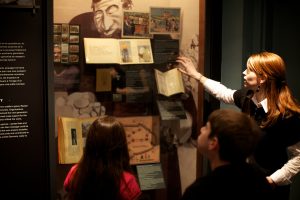Nov. 4 marks the 20th anniversary of the assassination of Yitzhak Rabin, Israel’s former prime minister, by a fellow Israeli Jew, Yigal Amir.
This is a difficult day for all Israelis.
Against the background of the bitter ideological divide that both preceded the assassination, and followed it, this is a day which forces us to ask ourselves deep questions about what kind of society we are and want to be, and how we realize our national dreams when there is no consensus as to how to do so, or even as to what they are.
For many, this is a day which requires that we renew our commitment to peace between Israel and its neighbours.
This we do, wholeheartedly. Despite the hostility and the terror and the incitement and the hatred, despite the rockets and the tunnels and the denial of our connection to Jerusalem, the search for a peace that will guarantee the security and prosperity of the Jewish state Rabin clearly loved remains at the heart of our national agenda and of our people’s yearning.
But there are other crucial lessons to be learned as well, including the need to stand vigilant against incitement, hatred and intolerance, and the violence these excesses so easily beget.
As we look back over the 20 years since that wrenching Saturday night, there is much to be proud of in the way Israeli society has dealt with the wounds, in the way we collectively pulled back from the brink and rebuilt our social and political contract.
Profound efforts have been made, by the government and by civil society, to ensure that this anniversary is a time which fosters unity. Official ceremonies are held and educational programs conducted in schools. People of different viewpoints come together to remember and reaffirm, to mourn and to sing, to listen and to learn.
We understand that we don’t have to reach agreement on everything in order to work together to advance our country and our society, and we know that we must foster tolerance and mutual respect always, even – and particularly – when we disagree over fundamental issues.
Here in Toronto, the Israeli Consulate together with the Israel Engagement Committee of UJA Federation have initiated a project to promote these values of acceptance and partnership. Building on the work of the Gesher movement in Israel, we are working to create opportunities for mifgash – encounters between Jewish schools here in the city.
Next week, Grade 8 students from Jewish elementary schools from different religious/ideological streams will meet – most for the first time in their lives – in “dialogue tents” specially set up so that they can become acquainted with each other and learn about each other’s views on matters of mutual interest.
Twenty-four young Israeli emissaries – shinshinim – embedded in the community through the UJA’s Israel Engagement committee’s work will facilitate these discussions.
None of these young Israelis ever knew Rabin or saw him in person, or experienced the feelings and emotions which engulfed us after the assassination. It is therefore particularly moving and inspiring to see them take on the responsibilities of bearing the torch of collective memory and collective purpose, so that our people can continue to learn from our past, as we build our future.
Why use the Rabin anniversary to foster this internal Jewish dialogue here in Toronto? We believe there are two compelling reasons:
Firstly, because this community can be deeply enriched by connecting with the dilemmas and challenges that Israelis face as we seek to build a democratic and Jewish society which lives up to our people’s best aspirations. Just as we do with the official Memorial Ceremony for Yom Hazikaron and many other educational initiatives and events in the community calendar, we believe it is important to make Israeli life and reality as accessible and intelligible as possible to the Jewish community as a whole.
And secondly, because the lessons of this tragedy apply not just to Israelis, but to all Jews.
There is no “mine” or “yours” here. Israel doesn’t only belong to Israelis, it belongs to the entire Jewish people. Even though our lives are often very different, we are one, and our need to allow for difference among us – the same.
It is our hope that this student dialogue initiative will become a permanent fixture in the community calendar and a model for even more engagement with Israel.
The new generation and the old, left and right, Israelis and Jews – all of us must work together to promote the unity of the Jewish people irrespective of which passports we travel on or which political platform we subscribe to, or which school we send our kids to. We must all work as one to promote tolerance and acceptance of those among us with whom we disagree, to enhance our own personal involvement and engagement with Israel and to help it to become the just, secure and peaceful society that we all yearn for.
If we act together, then the coming generations who may not have known Rabin will at least be able to enjoy the realization of his vision.
DJ Schneeweiss is Israel’s Consul General of Israel for Toronto and Western Canada. Lior Hameiri is the director of UJA Federation’s Israel Engagement Program.






